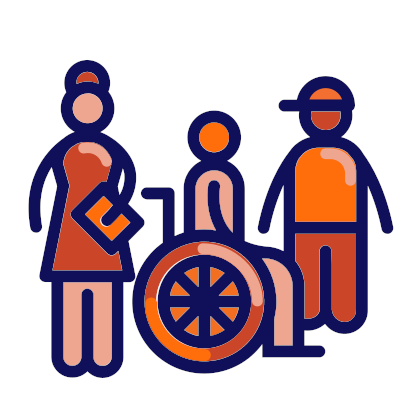Dealing with propaganda, misinformation and fake news

It is vital for schools to provide students with a solid education on media and information literacy as part of the curriculum.
Teachers must be well-trained in the subject to empower students with the necessary competences to critically understand and assess information reported by all forms of media.
Projects in partnership with national and local authorities and media organisations are encouraged.
Facts & figures
Two thirds of EU citizens report coming across fake news at least once a week.[1]
Over 80% of EU citizens say they see fake news both as an issue for their country and for democracy in general.[2]
Half of EU citizens aged 15-30 say they need critical thinking and information skills to help them combat fake news and extremism in society.[3]
What is propaganda, misinformation and fake news?
The terms ‘propaganda’, ‘misinformation’ and ‘fake news’ often overlap in meaning. They are used to refer to a range of ways in which sharing information causes harm, intentionally or unintentionally – usually in relation to the promotion of a particular moral or political cause or point of view.
It is possible to separate out three clearly different uses of information which fall into this category:
- Mis-information - false information shared with no intention of causing harm
- Dis-information - false information shared intentionally to cause harm
- Mal-information - true information shared intentionally to cause harm.[4]
Although none of these phenomena are new, they have taken on new significance recently with the widespread availability of sophisticated forms of information and communication technology. The sharing of text, images, videos, or links online, for example, allows information to go viral within hours.
Why is propaganda, misinformation and fake news important at school?
Since information and communication technology is so central to their lives nowadays, young people are particularly vulnerable to propaganda, misinformation and fake news. Young people spend a significant amount of their time watching television, playing online games, chatting, blogging, listening to music, posting photos of themselves and searching for other people with whom to communicate online. They rely heavily on information circulated online for their knowledge of the world and how they perceive reality. Many parents do not have sufficient technical competence to keep up with their children’s online activity, or educate them about the risks they might be facing. Schools, therefore, have a duty to provide young people with the critical and information skills which they cannot access at home.
“The significant rise of fake news as propaganda in recent years makes it critical that students have the skills they need to identify truth and discern bias.”[5]
The ability to respond critically to online propaganda, misinformation and fake news is more than a safe-guarding tool, however, it is also an important democratic competence in its own right. Analytical and critical thinking, and knowledge and critical understanding of the world, including the role of language and communication lie at the heart of the Council of Europe Reference Framework of Competences for Democratic Culture. They are central to Digital Citizenship Education and Media and Information Literacy.[6]
“School is the one place where it is absolutely crucial to train future citizens to understand, to criticise and to create information. It is in schools that the digital citizen must begin and maintain constant critical thinking in order to attain meaningful participation in his or her community.”[7]
The ability to handle off-line as well as online propaganda, misinformation and fake news is also a key skill in a number of other school subjects, e.g., History, Social Studies, Science, Religious Studies and Art. Young people may study the use of nationalistic and patriotic slogans, or so-called ‘atrocity propaganda’ in WW1 in History, for example; or art forms designed to support particular ideologies in Art lessons.
Another area in which information and communication technology is becoming an issue for schools is through adverse comments made about teachers and schools on social media. Schools are finding that parents and others increasingly turn to social media when they have a dispute or disagreement with their school, e.g., over school rules, school policies, or staff behaviour. How to handle online critical or defamatory comments or campaigns of this sort has become a matter of concern for leaders and managers in some schools.[8]
What are the challenges?
There are a number of challenges facing schools wishing to take propaganda, misinformation and fake news seriously as an educational or social issue:
- Teachers’ own online activity and area of experience is often quite limited and frequently lags behind that of their students. This can make them reticent to take on this area of teaching and learning without a significant commitment to professional development.
- The speed with which technology and young peoples’ online activity changes makes it difficult for teachers to keep up-to-date with recent developments. Even professional development programmes can go rapidly out-of-date.
- It can be difficult finding a discrete slot in the school timetable where issues relating to the creation and sharing of information can be taught. While aspects may be raised in a number of subjects, it can be a problem finding a space in an over-full curriculum where the phenomenon can be dealt with head-on as an issue in its own right.
- The description ‘fake news’ does not mean there is such a category as ‘true’ news. All news is a selection and written to suit a particular audience for a particular purpose. Providing the depth of analysis and sophisticated skills that do justice to this topic can be a challenge for some schools, especially in terms of teacher competence and training.
“States should take measures to promote media and digital literacy, including by covering these topics as part of the regular school curriculum and by engaging with civil society and other stakeholders to raise awareness about these issues.”[9]
How can schools get active?
Providing training for teachers on media and information literacy is the key to raising the profile of the issue in schools. Even though it may have a tendency to date, training can at least alert teaching staff to the importance of this area of learning for their students. The more important teachers see the area, the more they will feel the need to continuously up-date their skills themselves.
While it is important to recruit as many teachers as possible to this work, it can be more effective in the long run to start by appointing an individual teacher, or a small team, to lead on media and information literacy in the school. This element of specialist expertise can be charged with:
- Keeping staff up to date with new developments in information and communication technology
- Training them in strategies for handling propaganda, misinformation and fake news
- Helping them integrate these issues into the curriculum of different subjects
- Leading on school-policy development and action planning in this area.
In addition to these sorts of developments, there are a number of other initiatives a school can take to meet the challenges of the rapidly changing world of online propaganda, misinformation and fake news. These include:
- Special days or events in school on the subject of propaganda, misinformation or fake news as a way of overcoming the problems of an over-crowded formal curriculum
- Peer education initiatives in which older students instruct and counsel younger students in the safe handling of information they access in the media
- Partnerships with outside professionals or companies with expertise in this area, e.g., journalists, IT companies, universities
- Virtual links with schools in other regions or countries enabling students to get a different perspective on news and current affairs
- Recruiting parents with expertise in information and communication technology to help with school policy development or work alongside teaching staff to enrich student learning.
[1] Flash Eurobarometer 464 , 2018
[3] Flash Eurobarometer 455, 2018
[4] Wardle & Derakhshan, H., 2017. Information Disorder: Toward an interdisciplinary framework for research and policy making. Strasbourg, France: Council of Europe.
[5] When is fake news propaganda?, Facing History and Ourselves, 2018
[6] Digital Citizenship Education Handbook, 2019
[8] Council of Europe: Managing Controversy: a whole school training tool, 2017
[9] OSCE: Joint declaration on freedom of expression and “fake news”, disinformation and propaganda
 Resources on Dealing with Propaganda, misinformation and fake news
Resources on Dealing with Propaganda, misinformation and fake news
 Related schools projects
Related schools projects
Address: Makrygialos of Pieria
Country: Greece
Project: Journalistic Student Conference
 Working language during the project:
Working language during the project:
- Greek
 Themes of the Council of Europe campaign “FREE to SPEAK, SAFE to LEARN - Democratic Schools for All” covered:
Themes of the Council of Europe campaign “FREE to SPEAK, SAFE to LEARN - Democratic Schools for All” covered:
- Dealing with propaganda, misinformation and fake news
 Competences from the Reference Framework of Competences for Democratic Culture (CDC) addressed and where / how they were integrated:
Competences from the Reference Framework of Competences for Democratic Culture (CDC) addressed and where / how they were integrated:
- Values:
All students participate in our action, regardless of their particularities (background, cultural environment, disability) and develop valuing human dignity and human rights, cultural diversity, democracy, justice, equality and the rule of law. - Attitudes and Skills:
As they participate in collaborative actions they develop attitudes like openness to cultural otherness and to other beliefs, respect, responsibility, autonomous learning skills, analytical and critical thinking skills, co-operation skills and conflict-resolution skills. - Knowledge and critical understanding:
As student-journalists develop skills, like knowledge and critical understanding of language and communication, Knowledge and critical understanding of the world: politics, law, human rights, culture, cultures, religions, history, media, economies, environment, sustainability.
 Target group age range:
Target group age range:
- 11-15
 Level of education:
Level of education:
- Lower secondary education
Short description of the project:
 Aims/objectives
Aims/objectives
Makrygialos High School is a small provincial school in Macedonia of Greece with a large percentage of foreign students, in which we develop educational actions with pan-Hellenic distinctions, such as editing of the school newspaper, theatrical performances and other cultural and environmental activities.
The challenge for the students is to publish the school newspaper, to educate them in dealing with the the media and to embrace the principles of democracy and free expression. Thus, in the framework of the educational programme "Publication of the School Newspaper", they participate in the writing and publication of their school newspaper with the supervision of the School Director Mrs. Evangelia Kanali, aiming at informing and raising awareness public opinion on social, cultural, environmental, school life, health and nutrition education.
The highlight of this programme is the organisation of a “Journalistic Student Conference” aimed at students and teachers of the High Schools and the Lyceums in Pieria who issue or plan to publish school newspapers. It is an innovative educational programme that was implemented in Greece for the first time by a school and aims at educating students and teachers with media issues such as writing articles, selecting themes, gathering records, practical application, but mainly embraces the principles of intimate, honest, unselfish and democratic journalism. The Conference was held on 27 March 2018 and was attended by 307 students and 72 teachers from 17 High Schools and Lyceums in Pieria. This innovative action was selected from among 748 schools across Europe to be presented in the Oslo conference in which the new Council of Europe education campaign “Free to Speak, Safe to Learn - Democratic Schools for All” was launched in November 2018.
The Makrygialos High School journalistic group will continue this programme in the school year 2018-2019 and will organise the “2nd Journalistic Student Conference” aimed at training students and teachers in electronic journalism and in entrepreneurship, giving students experience of business processes (marketing, advertising, revenue management for public purposes, business plan). During the 2nd Conference, they will organize a Pieria School Newspaper Exhibition, so that the local society of school newspapers can see the students’ reflections and interesting creations. The Conference will be extended to the region of Central Macedonia and later to the whole of Greece, with the ultimate goal of becoming an institution for the country’s educational community. In addition, in April 2019 they will present their innovative action to students and teachers from the Istituto D’Istruzione Superiore – “Sandro Pertini” in Lucca in Italy, with whom they are twinned, hoping that it will result in a collaboration between the two schools and the developing of joint actions.
 Expected results/outcomes
Expected results/outcomes
Our innovative educational action
It is vital for a democratic school to provide students with a solid education on media and information literacy as part of the curriculum. The writing and production of school newspapers serves the basic purposes of Education, as it is an interdisciplinary activity consistent with the curriculum that combines multimodality, cooperation, critical ability, cognitive and linguistic development of students. However, journalist groups feel strongly about the need for expert information on issues related to writing and publishing school newspapers, such as:
- What are the stages of creating a newspaper?
- How to write an article, an essay, an interview, a documentary?
- What constraints are imposed by journalistic ethics, such as objectivity, impartiality, but also misinformation, misleading public opinion?
- How to avoid getting lost in the stream of information or being victim of propaganda and fake news?
- How is the management of economic issues related to the production of the newspaper?
The Director of Makrygialos High School Mrs. Evangelia Kanali, along with her student journalists, took the initiative of planning and organising the “Journalistic Student Conference” for students and teachers of High Schools and Lyceums in Pieria which issue or plan to issue school newspapers, as the schools do not have their own professional journalists. For this purpose they invited high-level media industry specialists to teach students and teachers about issues related to editing school newspapers and to basic concepts of journalistic ethics.
The Conference’s second objective was the school newspaper award. Every year, schools produce a significant number of student newspapers, the appeal of which is limited to the narrow boundaries of the local community or the school community. For this reason, the Makrygialos High School journalistic team wanted to promote and award school newspapers of High Schools and Lyceums in Pieria to motivate them into creating something new. The team presented all the school newspapers in Pieria and the Conference Review Committee awarded the "Best High School Newspaper" and the "Best Lyceum Newspaper”. The evaluation criteria used were: the variety of subjects, social, cultural and environmental issues, the correct use of language, the quality of journalistic speech.
The Conference’s third objective was a contribution to Local Educational History. The Makrygialos High School journalistic team gathered together all newspapers from Pieria’s High Schools and Lyceums so as to make an Archive of School Newspapers, to ensure they are not lost in time and with the hope that this initiative will be a small achievement in the History of the Pieria Student Press. Thereafter, the aim is to compile an archive of all the school newspapers published during the year for each subsequent Journalistic Student Conference with a view to submitting the archive at a future date to the General State Archives. Their next goal is to organise an Exhibition of the Pieria School Papers, in the belief that the promotion of school newspapers is an important factor for presenting children's views, highlighting their talents and communicating the school with their social environment.
The fourth objective of the Conference was to provide feedback to student journalists and their respective teachers. The Makrygialos High School journalist team invited archaeologists to show the students and teachers rare archaeological finds kept at the Makrygialos Museum, thus giving students the opportunity to report on, interview or write an article in their newspapers and take an active role as a journalist. At the same time, the Makrygialos High School journalistic team aimed to give visibility to the newly established Archaeological Museum of Makrygialos and to encourage Pieria schools to visit it, a goal that was immediately achieved.
 Changes
Changes
Innovative features of this educational action
The Journalistic Student Conference is an innovative event created by a democratic school. It- sets up a network of communication for the school journalist groups in Pieria and for exchanging views on important social, political and cultural issues, such as peace, democracy, equality, diversity, environment, education. It gave them the opportunity to inspire each other, to interact and take part in new creations in a spirit of co-operation and teamwork.
The Makrygialos High School journalistic group developed constructive co-operation with the Directorate of Education of Pieria, the local authorities, the local community and the Parents' Association, and asked them for funding for the awards and the Conference organization. They all responded to this request, recognizing the multiple benefits for the educational community and the city of Pieria from a democratic school open to society.
In evaluating the innovative character of this educational programme, it is clear that the above initiatives were developed by students with a different national, cultural background who:
- through their newspaper seek to gain a "step" and "voice" to express themselves, to communicate with the world around them
- through their articles, documentaries and interviews, claim the truth and raise public awareness of important issues
- listen to the needs of the educational community and strive to contribute to their innovative initiatives
- see another side of education; one where they are not empty pots filled with sterile, irrelevant knowledge, but responsible, participatory citizens who can become actors of school and social life.
The Journalistic Student Conference is an action of a democratic school that gives the opportunity to all pupils, regardless of their particularities (origin, cultural environment, disability):
- learn how to learn, how to conquer exploration and cooperative knowledge;
- develop critical ability and scientific thought to explore the causes or the consequences of problems;
- seek and disseminate information and ideas from around the world through their school papers;
- transform original ideas into innovative applications and activate their talent and skills for expression and creation;
- practice the recording of different textual items, such as articles, essays, interviews, documentaries and the production of oral and written speech;
- develop social and communication skills such as responsibility, planning, strategy and planning skills, needs analysis, organizational, teamwork and communication, decision-making and problem-solving strategies to become active in the future and socially sensitive citizens.
The Conference gives teachers the opportunity to understand that they should:
- teach their students how to collaborate by taking roles and to feel creative by composing one or more sheets of their newspaper
- be proud of the collective work, overcoming individualism and personal insecurities
- ensure a pleasant and attractive school environment for all pupils without discrimination or exclusion
- organise school life according to the democratic principles of freedom, dialogue, equality, justice, respect for diversity
In addition, students and teachers following the suggestions of the high-level media industry specialist journalists get to:
- realize the power of the press and the importance of the news
- become familiar with press-related concepts such as misinformation, false news, brainwashing, propaganda, anaesthetising of receivers;
- learn to apply and exploit a variety of different sources of data acquisition, but also critically manage the knowledge they derive from the internet
- understand the concept of a cross-thematic approach to information
- sharpen their critical thinking and perceptions to identify useful information from unnecessary information, insignificant events from worthwhile news
- learn to use methods and practices of science, technology and the arts to investigate, judge, comment, argue, and express themselves artistically
- practice a variety of writing styles, such as article, essay, interview, documentaries, op-ed.
The media journalists also help students and teachers to understand that propaganda, misinformation and fake news can polarise public opinion and undermine democracies and that there is a duty to apply the following fundamental principles of journalistic ethics:
- utilise a variety of different sources for data mining and learn to distinguish useful information from unnecessary information
- collect, cross-check and document information
- keep professional secrecy about information sources
- transmit news regardless of their personal political, social and religious beliefs.
- avoid legal difficulties by working responsibly and according to professional ethics.
- publicize the truth objectively and impartially and not by misleading public opinion with false news and propaganda.
 Challenges you faced
Challenges you faced
Organising the Journalistic Student Conference was a bold and difficult task. The challenges were important, but the benefits were great. Press articles, TV quotes and letters of congratulation - now in the school archive - all demonstrated that a small provincial school managed for the first time in our country to organise a Conference with high-reaching goals and a strong impact on the local and wider society.
To sum up, the Journalistic Student Conference is an innovative pedagogical action of a school operating according to democratic principles such as freedom and responsibility, participation, equality and justice. A school where teachers offer not only knowledge but vision and passion for their job and open new horizons according to the interests and sensitivities of students who in turn learn to go beyond the narrow boundaries of the school and become creative, responsible and active citizens in keeping with democratic culture.
 Time-frame of the project:
Time-frame of the project:
The Makrygialos High School journalistic group will continue this programme in the school year 2018-2019 and will organise the “2nd Journalistic Student Conference” aimed at training students and teachers in electronic journalism and in entrepreneurship, giving students experience of business processes (marketing, advertising, revenue management for public purposes, business plan). The Conference will be extended to the region of Central Macedonia and later to the whole of Greece, with the ultimate goal of becoming an institution for the country’s educational community.
 Council of Europe materials on citizenship and human rights education used while preparing or implementing your practice:
Council of Europe materials on citizenship and human rights education used while preparing or implementing your practice:
- Reference Framework of Competences for Democratic Culture
- Living Democracy - manuals for teachers
- Democratic governance of schools
- All Different – All Equal
- Managing controversy
- Teaching controversial issues-training pack
- Signposts
- We CAN!
- Mirrors
- Human Rights and Democracy Start with Us – Charter for All
- Freedom(s) - Learning activities for secondary schools on the case law of the European Court of Human Rights
- How all Teachers Can Support EDC/HRE: A Framework for the Development of Competences
- Multimedia Material (ex. video “Beat Bullying”, series of cartoons “Democracy and Human Rights at School”, video “Corporal punishment at school: how two parents decided to change things”)







